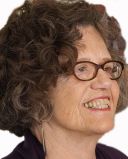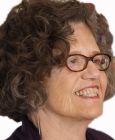Adoption
Adoptee Memoir Offers Hope and a Chance at Deepening Ties
Guest blog by Sara Easterly abour her memoir.
Posted December 7, 2019
I'm pleased to share this guest post by Sara Easterly, an adult adoptee, and to recommend her memoir, Searching for Mom. When I started to read it, I was impressed with the writing, but I expected it to focus on the search for her birth mother and their reunion. However, this is only a small part of the memoir.
It is mainly about Sara's complex and evolving relationship with her adoptive mother. Reading Searching for Mom should allay the fears of adoptive parents that a reunion with birth parents or an open adoption will undermine their own relationship with their adopted child. Rather, both reunions and open adoption improve an adoptee's sense of self and make adoption more fulfilling for all parties. Although I don't agree with Sara's and her mother's religious perspective, I recommend this memoir, particularly to adoptive parents.
“I have always been a terrible liar. One of the obvious traits good liars possess is an ability to keep secrets. But keeping secrets has never been my forté. It’s always felt wrong to hide things, especially from those closest to me.”
These are words from my newly released memoir, Searching for Mom. Despite these words, I spent a lifetime keeping secrets. (So now you can correctly infer that I spent a lifetime feeling wrong about it.)
As an adoptee, my training at secret-keeping began unconsciously at a very young age. I learned how to read others and be “good” for them—particularly my adoptive mom. From my brain’s perspective, my first mother abandoned me, so I learned to be good-better-best in order to keep my next mother close. I desperately needed to win her love. It was a matter of life or death.
Over the years, I became a master-level secret-keeper—not out of malice or vengeance, nor a desire to hurt anyone. And generally speaking, I was a reliable and trustworthy person.
My secrets were all about me. It was too dangerous to share my real self. I didn’t even know who she was. But somewhere along the line, I’d decided her unworthy—of sharing her authentic voice, and of love.
My mom had been unaware that something crucial was missing: my heart. We’d attached only at a shallow level. As I grew up, I became more and more private, especially when it came to sharing things that really mattered, when the stakes were highest—like the fact that I wondered a lot about my birth mom. And I passed over vulnerable opportunities with jokes, denial, indifference, feigned confidence, forced control. I locked my feelings in a thick, protective casing.
But then, my mom began to die—at the too-early age of 66.
As I flew home to say goodbye, I couldn’t help but wonder: Deep down, did I ever even accept her as my mother? I would miss her for sure. Perhaps more for my daughters, only 4 and 5, who wouldn’t get a chance to truly know their Grammy. But would it profoundly affect me when she was gone?
A few days after I arrived, I shared a long-held secret with my mom. Soon after, she and I began to talk heart-to-heart. She hadn’t died yet but was lying listlessly in a different room than mine. I could hear her loving voice talking through me. And she, apparently, could wordlessly hear mine.
“Just keep talking and just keep writing, Sara,” she said. "You have so much in that heart of yours that needs to come out.”
Her words surprised me. How did she know? I thought I’d kept my heart disguised so well. But at the same time, I’d been desperate for her to see it. At last, she did. Suddenly, my adoptive mother and I became closer than we ever had been before. I felt fully seen, known, and loved by her.
Even though I will forever cherish this deepening of our relationship, I’m sad that it took my mother dying for me to go there. Death gave room for the vulnerability my heart had longed to express, but I felt immense grief that I wasn’t able to trust in my mother’s love sooner.
Because of our secret interior world, adoptees don’t always talk about being adopted. We pretend it doesn’t haunt us. If we’re “in the fog,” we may not even realize the ways in which the trauma of our first loss affects us. We may struggle with life and in our relationships, but not think to tell our partners, friends, or therapists that we’re adopted.
We can fool ourselves so completely that we can also fool those around us into complacency. We give our loved ones a reason to say, “Oh, it’s not that way for the perfectly adjusted adoptee I know.” This only reinforces our need to keep our secret selves tucked away.
But what if adoptive parents could have a peek at the interior of one adoptee’s heart—with the aim of one day fully knowing their own, complete child and deepening their relationship?
What if adoptees, through a fellow adoptee’s transparency, could become conscious of adoption-related dynamics sooner—to become mindful of our traumatized brains’ sometimes-skewed instincts?
What if therapists could become more aware of ways that working with adoptees (who often present pretty well) may be different than treating non-adoptees?
What if adoptees’ spouses could have a means of making sense of their partner’s adoption trauma and how it affects their relationship?
What if our adult children could reflect on an adoptee-parent’s story—and in a less personal way, understand how a parent’s adoption may have influenced the way they were parented?
According to the National Council For Adoption’s 2017 report, “100 million Americans have either been personally touched by adoption within their families or know someone who is or has adopted.”1 Searching for Mom is written for anyone who’s been touched by adoption and has an interest at seeing what’s behind the curtain—a window into the heart and mind of an adoptee, who openly shares about her secret interior world.
In the book, I share my struggles with perfectionism, anxiety, alarm, and fear. I write with candor about my suicidal ideations and a long-held death wish. I write about my struggles embracing the faith of my adoptive family.
I write about fantasy mothers who entered and left my world until I finally searched for my birth mother. I write about feeling broken, unwanted. I write about my pursuit of love and worthiness. I write about my reticent heart, ever fearful of trusting my adoptive mother, or becoming a mother myself. I write about all of the ways in which I found healing, too.
I write in hopes that by sharing my raw and honest perspective, I will help others understand the often-misunderstood hearts of adoptees, and ultimately find hope.
Sara Easterly is the mother of two daughters and the daughter of two moms—her adoptive mom and her birth mother. She supports other mothers in their journeys and has a passion for helping others understand the often-misunderstood hearts of adopted children. Learn more at her website.
References
1Jo Jones, Ph.D. and Paul Placek, Ph.D., Adoption: By the Numbers: A Comprehensive Report on U.S. Adoption Statistics (National Council For Adoption, 2017). Accessible at https://www.adoptioncouncil.org/publications/2017/02/adoption-by-the-nu…




